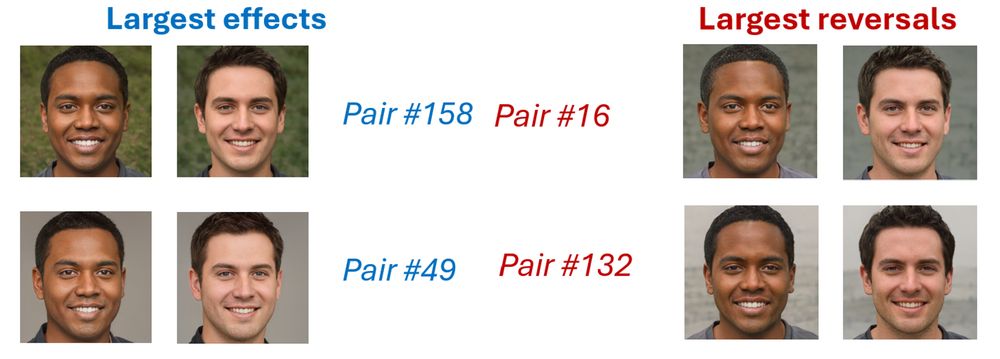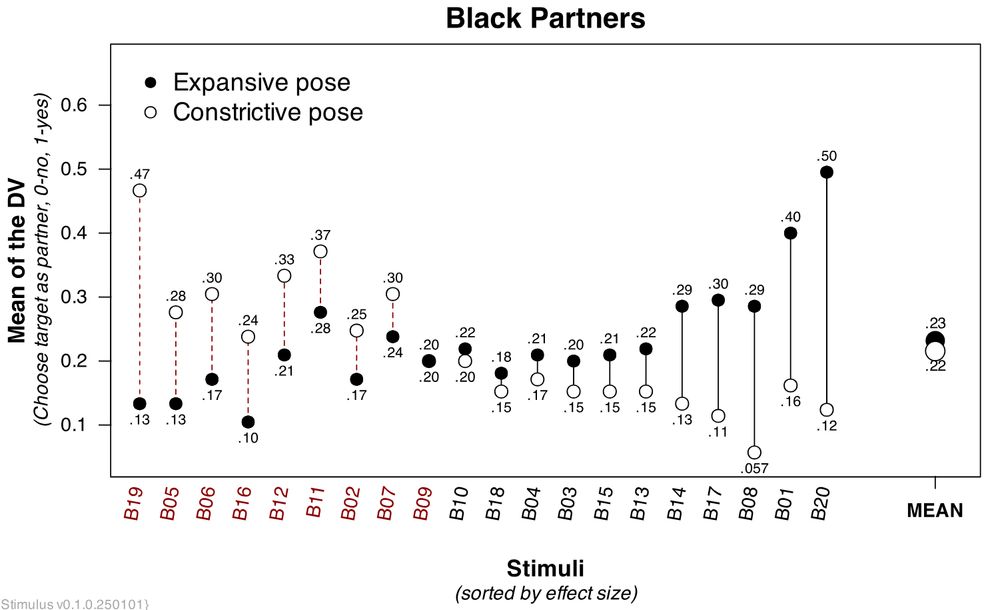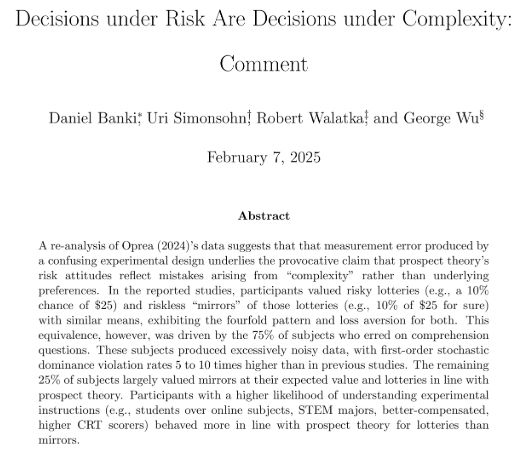TPM Conference 2026 – @Esade Barcelona, June 6-8
***TPM2026 in Barcelona, June 6–8 – Call for Papers***
The conference webpage & call for papers for the Theory + Practice in Marketing (TPM) Conference, which will be hosted by ESADE Business School in Barcelona (June 6–8), are now available at: tpmesade.com.
Submission Deadline: January 15, 2026
05.11.2025 10:52 — 👍 1 🔁 0 💬 0 📌 0

Colada[128] The Best Audit Study and its interesting shortcoming
datacolada.org/128
23.06.2025 14:15 — 👍 18 🔁 10 💬 0 📌 0

Don't assume, plot
datacolada.org/126
02.06.2025 15:37 — 👍 33 🔁 13 💬 1 📌 2

Join us on May 27, 2025, for the third annual SJDM Doctoral Symposium!
Link to register:
stonybrookuniversity.co1.qualtrics.com/jfe/form/SV_...
Looking forward to “seeing” you there!
2025 Doctoral Symposium Committee
Margaret Echelbarger
Ioannis Evangelidis
Ellen Evers
02.04.2025 20:03 — 👍 0 🔁 2 💬 0 📌 0

Title Authors Abstract (Decision under Risk are Decisions Under Complexity: Comment)
A new working paper with Daniel Banki, @urisohn.bsky.social and Robert Walatka, just submitted to SSRN.
The paper is comment on Ryan Oprea's recent AER paper.
The paper is processing, but you, my friends, get early entry.
papers.ssrn.com/sol3/papers....
07.02.2025 01:08 — 👍 106 🔁 32 💬 2 📌 11
Never thought about it. You describe inferences about a magnitude based on a categorical variable. In the paper we study inferences about one magnitude based on another (inferences about liking differences based on consensus). Perhaps there is less ambiguity, but inferential processes may be similar
03.02.2025 13:19 — 👍 1 🔁 0 💬 0 📌 0
You’re Probably Misunderstanding Polling Results | SPSP
When polls reveal a preference between options, people can misinterpret what that preference means.
You're probably misunderstanding people's preferences derived from polling results (e.g., 70% of people prefer A over B). In a new paper led by Graham Overton, we discuss this issue and how you can better calibrate your understanding.
Short summary: spsp.org/news/charact...
03.02.2025 09:24 — 👍 3 🔁 0 💬 2 📌 0
APA PsycNet
Not a review paper but this one may be useful. It reexamines some conclusions from previous research doi.org/10.1037/0096...
11.12.2024 21:46 — 👍 1 🔁 0 💬 0 📌 0
We (i.e., the marketing department at ESADE) are looking for PhD students. Please spread the word:
24.11.2024 12:44 — 👍 4 🔁 6 💬 0 📌 0
If you want estimates of main effects either use a different coding (-1 and 1 instead of 0 and 1) or run a regression model without interaction term(s). This should be common knowledge by now, but I keep encountering this issue in papers that I review and sometimes even in accepted papers.
20.11.2024 13:06 — 👍 1 🔁 0 💬 0 📌 0
Another reminder that in a regression with 2 dummy-coded independent variables (X1,X2) and their interaction [Y=b1*X1+b2*X2+b3*X1*X2, where X1(0=group 1,1=group 2), X2(0=group 1, 1=group 2)], b1 and b2 are NOT main effects. They are conditional effects of each variable when the other=0.
20.11.2024 13:06 — 👍 2 🔁 0 💬 1 📌 2
Went through JMR's and JCR's latest issues. Not counting qualitative studies and analyses of secondary data, 5 out of 37 (13.5%) studies at JMR were preregistered, while 5 out of 26 (19.2%) studies at JCR were preregistered. Also, no paper wherein all studies were preregistered.
15.02.2024 11:50 — 👍 1 🔁 0 💬 0 📌 0
Chocolates are becoming smaller, potato chip bags have more air, and toilet paper rolls are slimming down. We’ve all seen it and we all hate it.
Happy to share my new Marketing Science paper on "shrinkflation aversion" with the world. Preprint here: tinyurl.com/shrinkflatio...
05.12.2023 21:26 — 👍 0 🔁 0 💬 1 📌 0
Spotted in the wild (JEPG):
"Analysis scripts are publicly accessible at (osf link). Data is accessible upon reasonable request. The materials used in this study are widely available."
🤔
22.11.2023 15:32 — 👍 2 🔁 0 💬 0 📌 0
Not trying to defend Wansink, but this feature of the study should influence the magnitude of the effect size. It is an important mechanical aspect that is not really discussed anywhere in the replication 3/3
09.11.2023 23:52 — 👍 0 🔁 0 💬 0 📌 0
This is consistent with the fact that the difference in mean ounces of soup consumed between original and replication is larger in the treatment group than in the control group 2/3
09.11.2023 23:52 — 👍 0 🔁 0 💬 1 📌 0
Reading the soup bowl study replication. I'm wondering whether the smaller effect size in the replication could partly be attributed to the soup in the replication having more calories per ounce (22 vs 18 in original). If food is heavier, people have lower potential to eat 1/3
09.11.2023 23:52 — 👍 1 🔁 0 💬 1 📌 0
Also see osf.io/preprints/ps...
31.10.2023 03:06 — 👍 0 🔁 0 💬 0 📌 0
JCR retraction: academic.oup.com/jcr/advance-...
"The authors state that the hypothesized link between power and consumption deserves future empirical consideration before the field draws any firm conclusions about this relationship."
Nope. No future empirical consideration is deserved.
31.10.2023 03:04 — 👍 4 🔁 0 💬 1 📌 0
Cool findings. Congrats!
24.10.2023 09:35 — 👍 0 🔁 0 💬 1 📌 0
PNAS
Proceedings of the National Academy of Sciences (PNAS), a peer reviewed journal of the National Academy of Sciences (NAS) - an authoritative source of high-impact, original research that broadly spans...
New paper in PNAS (with Anna Paley)! 2 contributions:
1) People have many more subscriptions than they think they have, and if they know this they intend to cancel some
2) We use crowdsourcing to generate and evaluate nudges, and find that they performed better than those made by experts
24.10.2023 07:28 — 👍 4 🔁 1 💬 2 📌 0
I reviewed a paper with 3 experiments, small samples & not preregistered. I asked for 1 preregistered replication in my review. Authors responded that they didn't run more studies because the paper would become too long. I recommended rejection. Paper is conditionally accepted. Lol
17.10.2023 19:45 — 👍 9 🔁 1 💬 2 📌 0
If you were choosing between hotels A (price per night: 79, 3 stars) and B (price per night: 109, 4 stars), would your choice be influenced by adding C (price per night: 109, 3 stars)? Our new paper that answers this question is now free for a limited time at: academic.oup.com/jcr/article/...
06.10.2023 21:27 — 👍 2 🔁 0 💬 0 📌 0
Empowering leaders to create positive impact & inspire change with purpose. Find trusted insights, thought-provoking debates & inspiration to #DoGoodDoBetter
linktr.ee/Esade_
Psychology prof at the University of Toronto.
Professor of social sciences -- working on consumer psychology, AI, sensory marketing, and social identity at University of Virginia, Darden School of Business
Ass. Prof at University of San Francisco
It's all about the customer(s): centricity, valuation, metrics, management. I teach this stuff at Wharton and bring it to life through Theta.
Assistant Professor of Marketing, University of Alberta | Wharton PhD '23 | Studying consumer behavior
PhD student consumer behavior @ChicagoBooth studying decision making.
Postdoc at LMU Munich | consumer research | meta science
Associate Professor of Marketing // Branding, Digital, & Behavioral Researcher // Follow me: http://linktr.ee/Dr_Max
Assistant Professor of Marketing at Boston University. I work in Quant. Marketing and Empirical Industrial Organization.
https://www.shuntokobayashi.com
PhD Student in Behavioral Marketing @Stanford GSB
UChicago '24
Affective science & decision researcher with side interest in music. Psych professor at Linköping University and senior research scientist at Decision Research aofcompassion.bsky.social Co-director https://jedilab.weebly.com
assistant professor of marketing @ iese
aspiring marine biologist (no luck yet)
serious questions + unserious people
Aspiring philosopher; tolerable human; "amusing combination of sardonic detachment & literally all the feelings felt entirely unironically all at once" [he/his]
Assistant professor at Northwestern. Working on and interested in: dementia, digital biomarkers, judgment and decision-making, psychometrics (e.g., NIH Toolbox).
Marketing PhD candidate @Wharton | Consumer behavior; financial decision-making; information and curiosity; prosocial behavior | Travel adventures; Bauhaus
Associate Professor, Decision Psychology and Quantitative Psychology, The Ohio State University
Postdoc at Darden School of Business, University of Virginia | PhD at Harvard | He/him 🏳️🌈
Associate Professor, Marketing & Behavioral Science, Uni Lausanne. Runner. Hiker. Skier. Swiss. www.isabelleengeler.com




